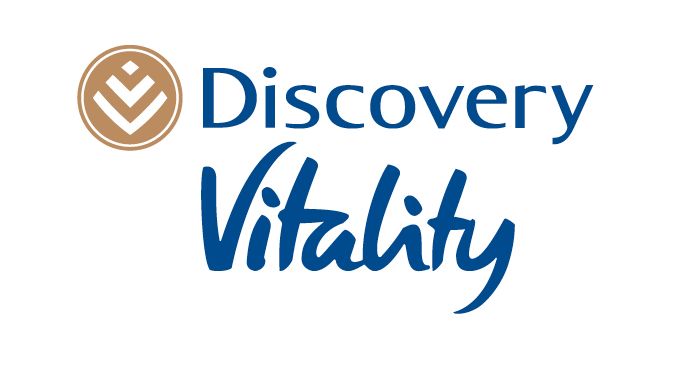
Press release -
Why we welcome a sugar tax
In response to the proposed sugar tax, Dr Craig Nossel, Head of Vitality Wellness said: “We believe that action is required to reduce the intake of sugary drinks, and support the proposed sugar tax. From a health point of view, it is excellent news that sugar content will remain the base on which the tax is applied – this encourages reformulation and the availability of drinks with a lower sugar content. We are also pleased to hear that some of the revenue generated from the proposed tax will be used to support health-promotion programmes aimed at non-communicable diseases. We have much to do as South Africans to combat the increasing prevalence of obesity in our country, and the sugar tax is a step in the right direction.”
There are a number of reasons Discovery Vitality supports the Government’s proposed introduction of a sugar tax. In South Africa, obesity is ranked as one of the top five risk factors for early death, and years lived with disabilities[i]. Excess sugar consumption is clearly linked to obesity[ii], which is the number one risk factor for chronic diseases of lifestyle, also known as non-communicable diseases (NCDs), like diabetes and heart disease. It is estimated that NCD-related deaths globally will outnumber deaths from communicable, maternal, and perinatal deaths by 2030.
South Africans are among the top 10 consumers of sugary drinks in the world[iii].
Studies also show that we continue to increase our consumption of sugary drinks: A study on Food consumption changes in South Africa since 1994’[iv] shows that the total intake of sugary drinks – carbonated and fruit juice – increased by 68.9% between 1999 and 2012. Research shows that drinking too many sugary beverages leads to an increased risk for obesity, particularly concerning for children and adolescents. This is because sugary drinks are a significant source of added sugar but do not make you full. Generally, people do not eat less to compensate for the extra calories they drink[v].
Obesity is rising
Between 1980 and 2008, the prevalence of obesity worldwide doubled. With almost 40% of women and 11% of men classified as obese[vi], South Africa has the highest obesity rate in Sub-Saharan Africa. Rising obesity rates, which evidence demonstrates is the key cause of the pandemic of NCDs, are mainly caused by changes in our diet, work and leisure time. Specific drivers include energy-dense, nutrient-poor diets, physical inactivity, large portion sizes and irresponsible food advertising.
Obese individuals incur 30% higher medical costs than their counterparts with a healthy weight
Research published in the South African Medical Journal on the relationship between levels of obesity and medical expenses[vii] among South Africans on a medical scheme show that obesity is strongly associated with significantly increased healthcare expenditure. Severe obesity, this study indicated, increased healthcare expenditure by R4 425 for each person, split between inpatient and outpatient care.
Recent Discovery Vitality research gathered from HealthyFood Benefit data, which specifically looked at the impact of sugar purchasing (specifically from sugary drinks) on healthcare costs, supports the findings of the medical scheme study. The analysis showed that an increase in sugar purchasing (from sugary drinks) was associated with a 4.1% increase in healthcare costs over a 3-year period from 2014 to 2016. The research also showed that members who started off consuming a greater amount of sugar had healthcare costs that were 2.9% higher than for the rest of the members by the end of the period.
Cooperative efforts are needed to ensure policy changes are effective
A multi-pronged approach is required to achieve a change in population behaviour and health. Discovery Vitality has gathered a significant amount of scientific and anecdotal evidence over the last twenty years, which points to the successful application of behavioural economics, and the power of education and wellness intervention programmes. The HealthyFood Benefit, which offers members up to 25% cash back on a range of healthy foods (specifically selected to address high risk dietary practices that are associated with NCDs including diabetes, high blood pressure and high cholesterol), is one such example. Over time, Discovery Vitality has found that incentivising members to make healthier choices positively influences their purchasing behaviour; an increase in the purchasing of fruit, vegetables, and whole-grain foods, and a reduction in the purchasing of high-sugar, high-salt, processed, and fried foods[viii].
_______________
[i]Mortality trends and differentials in South Africa from 1997 to 2012: second National Burden of Disease Study. Lancet Global Health 2016; 4(e642–53).
[ii]Norman R, Bradshaw, D., & Schneider, Metal A comparative risk assessment for South African 2000: towards promoting health and preventing disease. South African Medical Journal 2007; 97: 637–41
[iii]Singh GM, Micha R, Khatibzadeh S, et al. Global, Regional, and National Consumption of Sugar-Sweetened Beverages, Fruit Juices, and Milk: A Systematic Assessment of Beverage Intake in 187 Countries. PLoS ONE 2015; 10(8): e0124845.
[iv] Ronquest-Ross L-C, Vink N, Sigge GO. 2015. Food consumption changes in South Africa since 1994. S Afr J Sci. 111(9/10), Art. #2014-0354, 12 pages. http://dx.doi.org/10.17159/ sajs.2015/20140354
[v]Mourao D, Bressan J, Campbell W, Mattes R. Effects of food form on appetite and energy intake in lean and obese young adults. Int J Obes (Lond) 2007; 31(11): 1688-95.
[vi]Shisana O, Labadarios D, Rehle T, et al. South African National Health and Nutrition Examination Survey
(SANHANES-1). Cape Town: HSRC, 2014.
[vii] The effects of obesity, smoking, and excessive alcohol intake on healthcare expenditure in a comprehensive medical scheme; November 2013, Vol. 103, No. 11 SAMJ.
[vii]An R. et al. 2013. Eating Better for Less: A National Discount Program for Healthy Food Purchases in South Africa. Am J Health Behav. 37(1):56-61 DOI: http://dx.doi.org/10.5993/AJHB.37.1.6
Topics
Categories
- Obesity
- stroke
- diabetes
- Government
- research
- Discovery
- South Africa
- calories
- World Health Organization
- heart disease
- healthcare costs
- chronic conditions
- non-communicable diseases
- NCDs
- Discovery Vitality
- medical expenses
- sugar tax
- chronic diseases of lifestyle
- risk factor
- HealthyFood Benefit
- sugar consumption
- sugar sweetened beverages
- global pandemic
- wellness interventions
- lifestyle interventions
Discovery information
About Discovery Limited
Discovery Limited is a South African-founded financial services organisation that operates in the healthcare, life assurance, short-term insurance, savings and investment products and wellness markets. Founded in 1992, Discovery was guided by a clear core purpose – to make people healthier and to enhance and protect their lives. Underpinning this core purpose is the belief that through innovation, Discovery can be a powerful market disruptor.
The company, with headquarters in Johannesburg, South Africa, has expanded its operations globally and currently serves over 5 million clients across South Africa, the United Kingdom, the United States, China, Singapore and Australia. Discovery recently partnered with Generali, a leading insurer in Europe, and has partnered with John Hancock in the US. These new partnerships will bring Discovery’s shared-value business model to protection industries in Europe and the US.
Vitality, Discovery’s wellness programme, is the world’s largest scientific, incentive-based wellness solution for individuals and corporates. The global Vitality membership base now exceeds three million lives in five markets.
Discovery is an authorised financial services provider and trades under the code “DSY” on the Johannesburg Securities Exchange.
Follow us on Twitter @Discovery_SA







